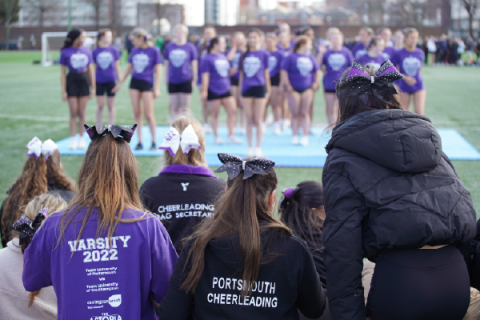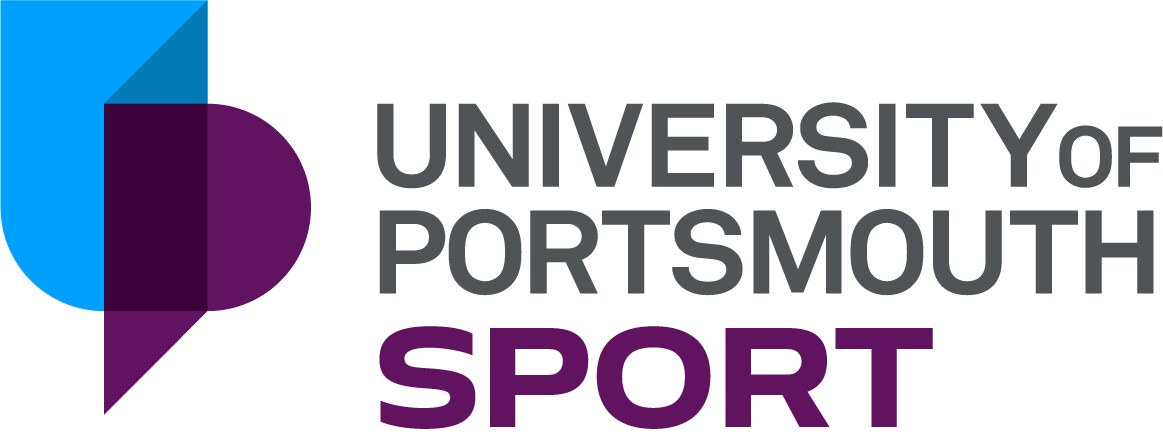

Read Tayah's story about how sport helped with dealing with anxiety and PTSD as a result of domestic abuse
Our sporting minds campaign is running throughout the entire month of March 2022. This campaign aims to raise awareness of mental health issues through sharing stories from members of our sports clubs. These stories are honest, open and extremely helpful, showing readers that they are not alone in their struggles and giving examples of healthy coping mechanisms and outlets for dealing with complex feelings. We hope that this campaign inspires conversations between you, your friends, family and teammates. We have also supplied a number of resources below if you are affected by this story.
Tayah is a member of Team UOP Cheerleading Club and studying for a degree in social work, this is her story.
Growing up, I experienced severe domestic violence and abuse from my father. When I was 11 years old, my mum made the brave decision to escape with me and my brothers to a new area, we changed our names, schools and lifestyles. However, on the day of escape we were found by my father within a few hours then tormented and stalked until we were moved by the police two years later to a safer area outside of the city.
After our second managed move, we finally understood what it felt like to feel safe and have a place to call home. Due to the effects the abuse had on me, I was diagnosed with anxiety and PTSD at 13, with this, I also had a lot of pent up anger which caused me to rebel and get into trouble in and outside of school.
During my first week of attending my new school, I was put on a report card and threatened to be permanently excluded. My mum sat me down and encouraged me to focus my aggression and anger on something good, like sport. She took me to a local sports charity that puts on free sporting sessions in the area.
This is where I fell in love with boxing. I was able to channel my negative emotions into the sport and quickly become an advocate for the charity. Boxing taught me discipline, focus, resilience and patience. I felt relief and peace whilst boxing as my mind was allowed time to be able to heal.
Over time, my anxiety started to ease and I was improving in school. In the same year, I was almost permanently excluded, I was voted to be the school's Head Girl. This was all due to the lessons I had learnt from boxing and the sport allowing me to channel my emotions and understand myself better. I was able to come to terms with my past and recover from the damage, with this I realised my worth and since then, I have strived for greatness.
Since attending University, I have found a new sport - cheerleading. While this is very different from boxing, I fell in love with being part of a team. Since starting cheer I have learnt new lessons such as taking accountability, being a team player and learning to be responsible for others. I am now Vice President of Cheerleading and I also compete and coach the sport at University alongside my postgraduate degree.
I started boxing at 14, I achieved head girl, won hero of the year award, received recognition from the mayor for my achievements, become a boxing coach, was made a member of the youth crime commission, discussed the mental health crisis in young people with the Duke and Duchess of Cambridge and became an ambassador for one of the UK’s biggest sporting charities all before the age of 16.
Since then, I achieved 10 GCSEs, 3 A-Levels and a University degree in social work. None of which would’ve been possible without having stepped in the boxing gym that day and the constant support and encouragement from my mum. Sport has taught me how to love myself and inspired me to achieve whatever I want in life, no matter how big or small. It’s improved my mental health and helped me overcome my fears, mental obstacles and trauma. Sport is a medicine we should all use to improve our well-being.
Tayah's video
Tayah has also provided us with a video about her story, you can watch it on Twitter.
Tayah bravely shared her journey, beginning with challenging teen years, all the way to who she is proud to be today. Like many of us who have experienced trauma, developing healthy coping strategies are key and not always initially easy.
This is a further testament, that whether it’s a school classroom or a university lecture theatre, you very rarely know what people are experiencing in their personal lives. There is more beneath the surface.
Tayah was able to channel direction in productive pathways, including sport and academics, achieving a degree in Social Work. There’s a great chance she’ll go on to support people who may find themselves in the same shoes she and her family were once in, which is nothing short of inspiring.
If you need some support with your own mental health at this time, the student wellbeing service have a number of resources to help.

